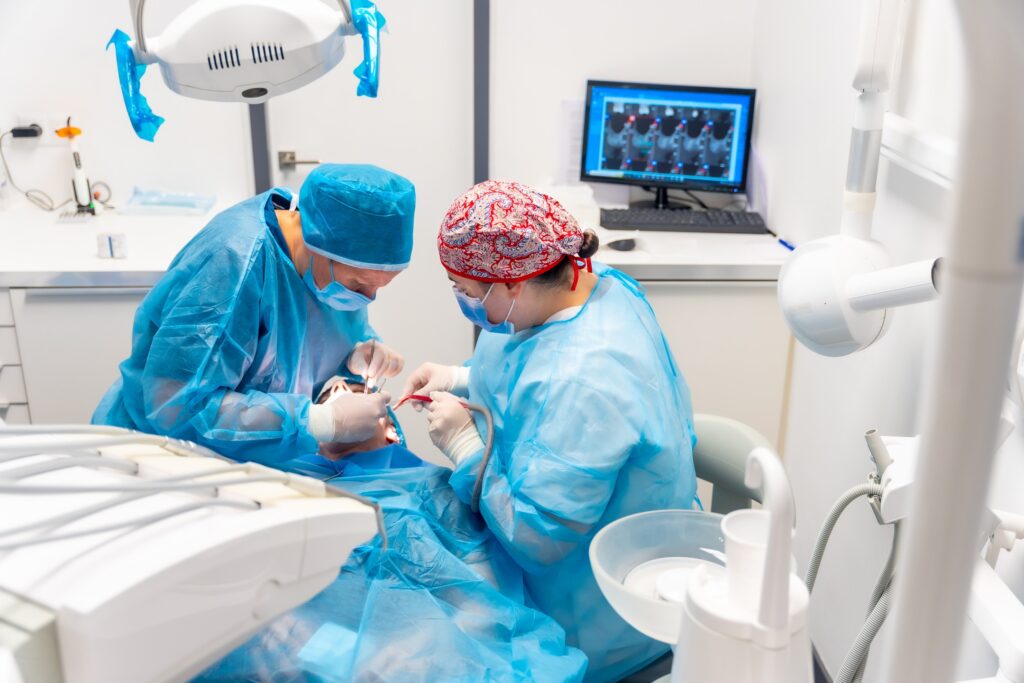Peri-Implantitis Treatment: A Comprehensive Analysis and the Role of Magdent’s PEMF Technology
In the world of dental health, peri-implantitis presents a formidable challenge, necessitating a blend of surgical precision and technological innovation for effective management. This comprehensive analysis, incorporating insights from multiple studies, will shed light on current treatment modalities for peri-implantitis and highlight the pioneering role of Magdent’s Pulsed Electromagnetic Field (PEMF) technology as a leading solution.
Understanding Peri-Implantitis and Its Prevalence
Peri-implantitis is a pathological condition affecting tissues around dental implants, marked by inflammation and progressive loss of supporting bone. It’s a significant complication, often leading to implant failure. Recent studies indicate peri-implantitis prevalence ranges from 11.2 to 22%, making it a common yet challenging issue in dental implantology.
Surgical Interventions in Peri-Implantitis
Treatment for peri-implantitis ranges from non-surgical methods, effective in reducing soft tissue inflammation, to surgical therapies recommended for advanced cases. These surgical treatments can be categorized into access flap surgery, resective therapy, and augmentative methods. A study on the efficacy of these methods found that augmentative treatment (AT) improved radiographic bone fill (RBF) and clinical attachment level (CAL) more than open flap debridement (OFD), but was comparable in reducing soft tissue inflammation. The addition of ozone therapy to AT showed improvement in RBF and CAL gain, while photodynamic therapy did not significantly alter these outcomes.
Limitations and Challenges in Current Treatments
Despite advancements, challenges in peri-implantitis treatment remain. Surgical methods, although better than non-surgical treatments, still have limitations. For instance, augmentative therapy, while successful in increasing bone fill, does not outperform OFD in reducing soft tissue inflammation, and its efficacy when combined with ozone therapy requires cautious interpretation due to limited evidence quality.
Pulsed Electromagnetic Field (PEMF) Therapy by Magdent
Amidst these challenges, Magdent’s PEMF technology emerges as a revolutionary solution. PEMF therapy modulates the immune response and is known for its efficacy in orthopedics to treat osteoarthritis and improve bone regeneration. This technology, when applied in peri-implantitis treatment, has shown promising results in reducing peri-implant soft tissue inflammation and marginal bone loss. A study involving patients with peri-implantitis revealed significant improvements in clinical parameters, including a reduction in crestal bone loss and lower levels of inflammatory markers like interleukin-1β (IL-1β), after short-term PEMF therapy.
Further, Magdent’s clinical researches have demonstrated the efficacy of PEMF therapy in various aspects of dental implant care. A double-blind randomized controlled trial showed a reduction in marginal bone loss within a month of treatment with PEMF, which remained constant after a three-month follow-up. Another study on dental implants stability found a significant 13% increase in implant stability in the test group using PEMF, compared to a 2% decrease in the control group. Additionally, PEMF’s antimicrobial effects were evident in controlling bacterial colonization around dental implants, significantly lowering total bacterial counts in the test group compared to the control group.
Conclusion
The management of peri-implantitis is evolving, with surgical methods showing varied levels of efficacy and novel therapies like PEMF gaining prominence. Magdent’s PEMF technology stands out as a non-invasive, effective solution for enhancing treatment outcomes in peri-implantitis. Its ability to improve bone regeneration, implant stability, and control bacterial colonization positions it as a leading treatment modality in contemporary dental care.
For dental professionals and patients grappling with peri-implantitis, Magdent offers a path forward with its innovative technology. To explore more about Magdent’s PEMF solutions and how they can revolutionize your approach to peri-implantitis treatment, visit Magdent’s website and embrace the future of dental implant care today.
